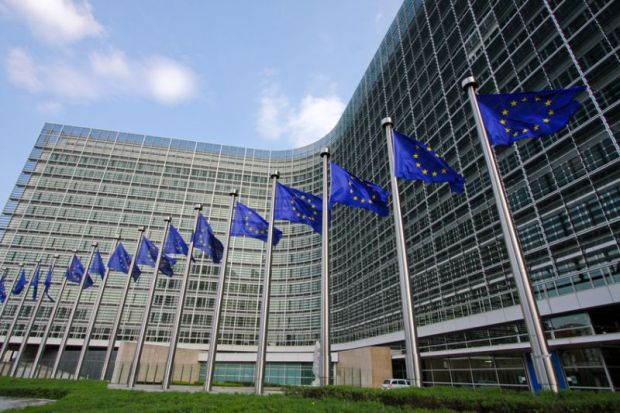The UK’s association to Horizon Europe must be swiftly finalised, according to groups representing universities, learned academies and researchers which warn that current and future collaborations are “rapidly reaching a crunch point”.
The terms of the UK’s participation were set out in the Brexit agreement 11 months ago but confirmation of the country’s involvement is yet to be agreed, with the issue reportedly becoming a “bargaining chip” in wider ructions over the Northern Ireland protocol.
In a letter to European Commission president Ursula von der Leyen published on 4 November, representatives of more than 1,000 universities across the continent say that “the absence of a clear timeline for finalising UK association is now causing increasing concern”.
“This lingering uncertainty risks endangering current and future plans for collaboration,” warn the groups, also representing 56 academies of science, 33 rectors’ conferences and 120 regional organisations.
“We are rapidly approaching a crunch point. With the first Horizon Europe grant agreements approaching and new calls soon to be launched, UK association must be finalised without further delay.
“Now is the time for swift and decisive action. Further delays or even non-association would result in a missed opportunity and a major weakening of our collective research strength and competitiveness.”
Organisations that signed the letter include the European Universities Association, the Guild of European Research-Intensive Universities, and the League of European Research Universities. Germany’s U15 and France’s UDICE French Research Universities also signed.
“Notwithstanding current arguments in other areas of UK-EU relations, the question of science collaboration is not a zero-sum game,” said Jan Palmowski, the Guild’s secretary general.
“If UK association to Horizon Europe is not realised, the capacity of science and innovation in the UK and in the EU are both weakened.”
Jan Wöpking, secretary of the U15 – the equivalent of the UK’s Russell Group – said that UK association to Horizon Europe was an “obvious win-win for both parties”.
“The UK is a world leader in science. So is the EU. British universities are among the closest, most trusted and strongest partners that our universities have,” Dr Wöpking said.
“We will only solve the crucial challenges the world is facing by combining our strengths in research and innovation. We have no time to lose.”
Mariya Gabriel, the European commissioner for research, has stated that “transversal issues” need to be addressed before the UK’s association can be concluded.
On 25 October, David Frost, the UK minister in charge of overseeing the implementation of the Brexit deal, told the UK Parliament’s European Scrutiny Committee that the government was “getting quite concerned” about the delays. In a report, the committee said that delays “raise a concern about value for money”, because UK researchers will have fewer chances win back the country’s contributions.
A spokeswoman said that the commission “continues to recognise the mutual benefit in cooperation in research, science and innovation” with the UK.
“The UK’s association to Horizon Europe and other EU programmes will be finalised in due course. This requires a level of trust that the attached conditions will be complied with,” she said.
Vivienne Stern, director of Universities UK International, has warned that delays could strengthen the hand of those in Westminster who were “never that enamoured” about joining.




